5 things you should never clean with baking soda – according to professionals
Baking soda is admired for its unrivalled cleaning ability, but experts urge caution – here's what you need to know
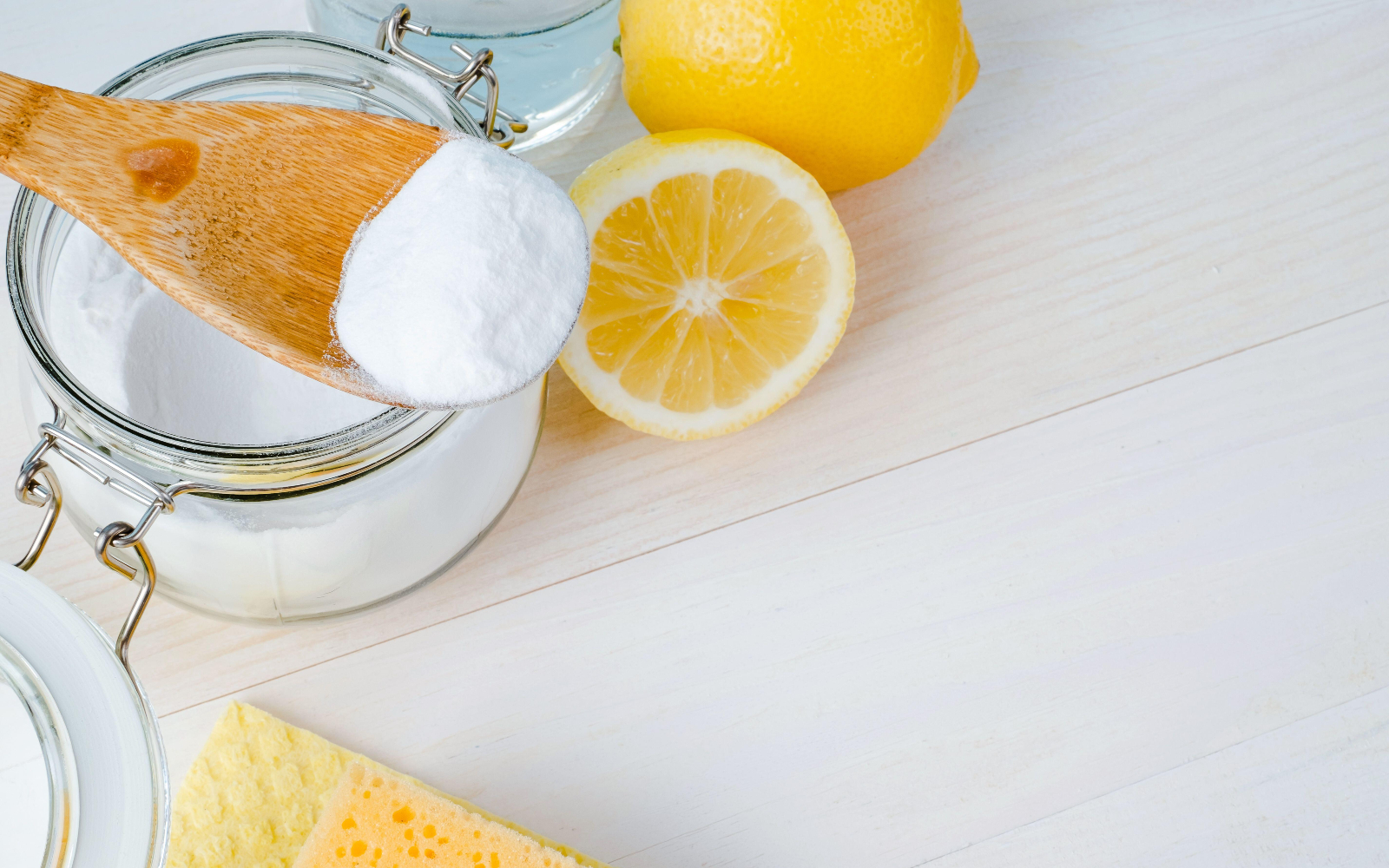

Yes, there are things you should never clean with baking soda.
This household staple is known and rightly valued for its ability to tackle dirt around the home – from your kitchen floor to your bathroom sink – and beyond. The list of things you can clean with baking soda is seemingly endless – whether you're using baking soda to clean windows or as a way to tackle pests (such as using baking soda to kill ant infestations) but for all its versatility – there are some items to avoid using baking soda on.
This is what the experts urge us not to clean with baking soda – and what you should use as an alternative.
5 things to avoid cleaning with baking soda – and what to use instead
'Although baking soda may appear to be the ideal natural cleaner, it can harm a variety of surfaces,' warns Jack Williams, the CEO and founder of Handyman Reviewed.
'Baking soda's primary component, sodium bicarbonate, is the reason it has been used for generations as a natural cleaning agent worldwide. [It] has the potential to harm some materials through unintended chemical reactions.'
These are the main surfaces and furnishings to avoid using it on.
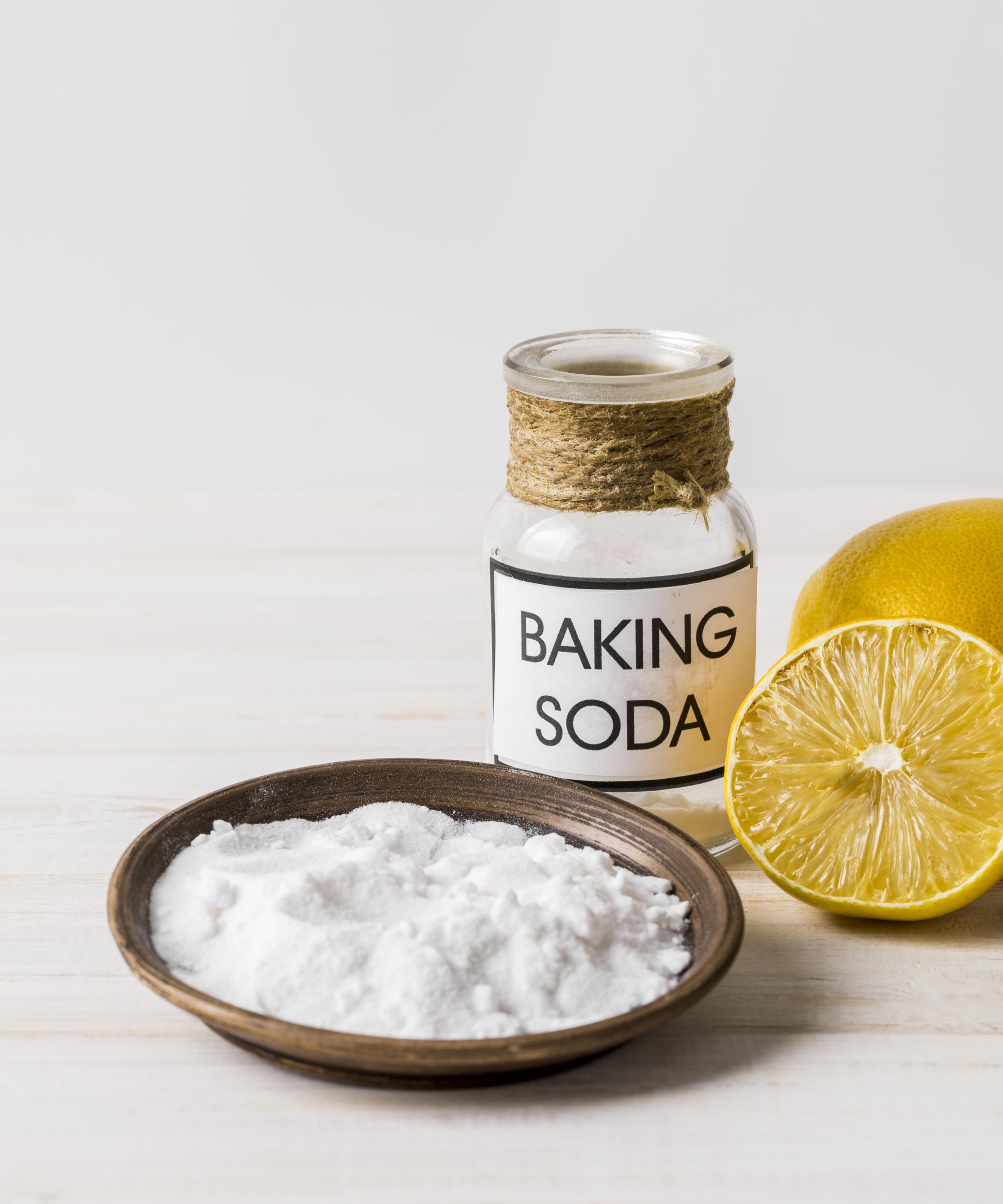
1. Quartz or marble countertops
When it comes to kitchen countertop ideas, few materials rival the beauty of quartz or marble. So, it is inevitable that you will want to do everything you can to accentuate and maintain their aesthetic. And while baking soda may seem like the most obvious solution, Jack warns against using the pantry staple.
'Never clean marble countertops with baking soda. This could damage or wear down the sealant over time, causing it to lose its shiny sheen,' the expert says. 'Additionally, since natural stone such as marble, quartz, or any other type is an expensive material, any damage may be expensive to restore.'
Instead, Jack recommends wiping your kitchen countertops with dish soap and water or a special marble cleaner to avoid etching. This is Amazon's most highly rated stone and granite cleaner.
2. Dinnerware with a gold finish
Dinnerware with a gold finish is an investment piece. However, baking soda is the quickest way to threaten its beauty.
'Avoid using baking soda when cleaning plates or silverware that have gold trim,' Jack says. 'Gold (and ancient silver) are very soft metals that can not withstand baking soda's abrasiveness. It won't just scuff up the finish; it may make the plating completely disappear.'
Similarly, as the expert suggests, it is better to avoid using it on silver, too. 'Even though baking soda can remove tarnish from silverware quite rapidly, using it isn't always a good idea,' he cautions.
'When cleaning ancient silver, baking soda is considerably too abrasive, dulling the metal and leaving scratches on the surface. Additionally, using baking soda may hasten the corrosion of the silver.'
Dish soap in warm water should do the job, without damage.
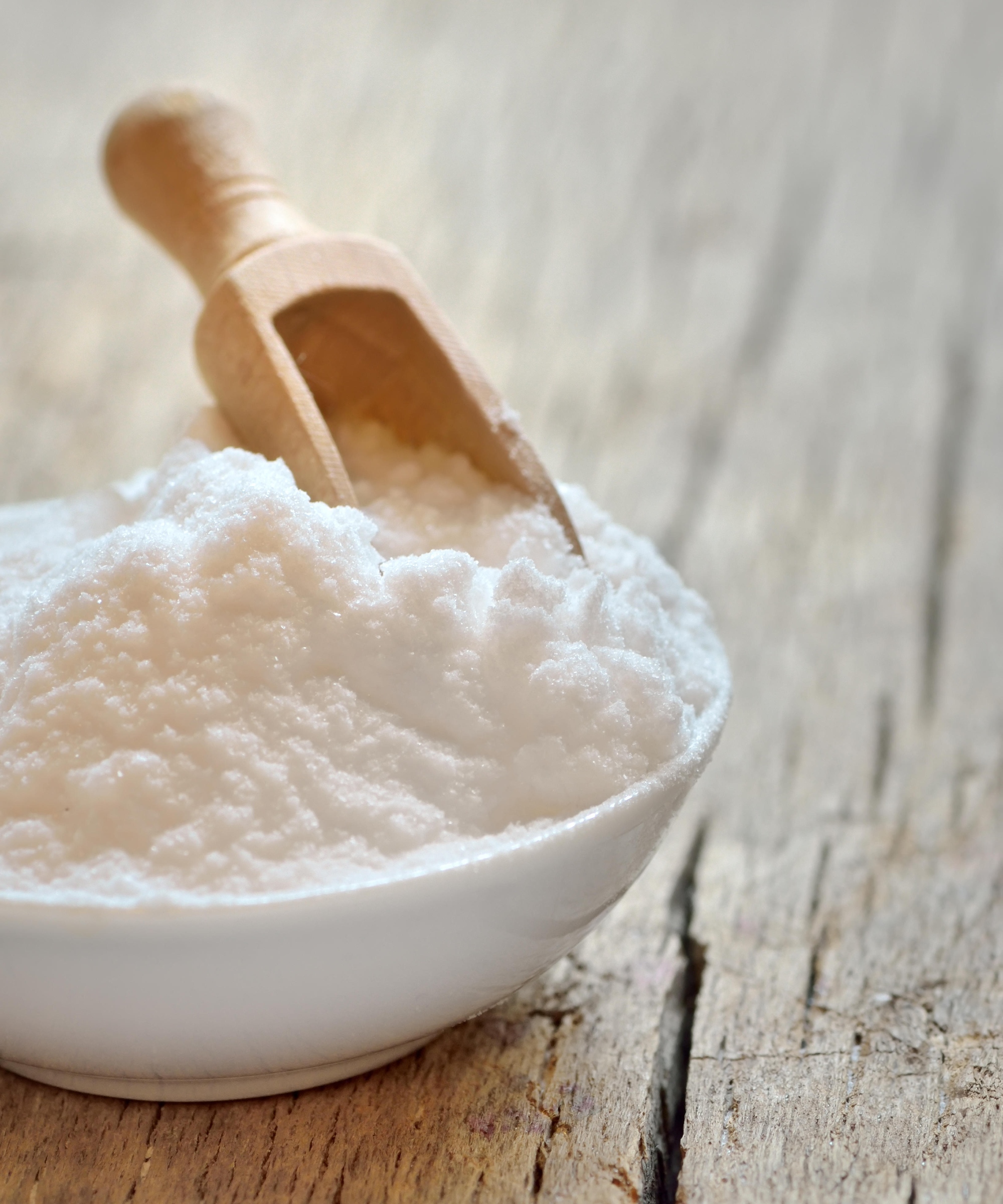
3. Hardwood
When cleaning wooden furniture and floors, it is perhaps inevitable to look to baking soda. However, it's a no-no.
'Avoid using baking soda if you want a shiny, wooden floor,' Jack says. 'Baking soda will only harm or deform the hardwood since it is too harsh on the wood sealants used on wooden flooring or furniture. Stay with the tried-and-true method of soapy water.'
And Jack is not alone in his sentiments. Harry Virk, the CEO of CleaningPro, adds wood is too delicate a material for baking soda and so should be avoided. 'The latter fogs up your furniture and can cause permanent streaks,' he says while sharing his cleaning tips. 'To clean them, use wax instead.'
We like Feed N Wax Wood Polish and Conditioner.
4. Items with large cracks or grooves
Baking soda tends to leave behind a dusty, white residue once it dries, meaning it can do more harm than good on some certain surfaces. The experts warn that much of these include many of your home office ideas – including keyboards, mice, TV remotes, and cane furniture.
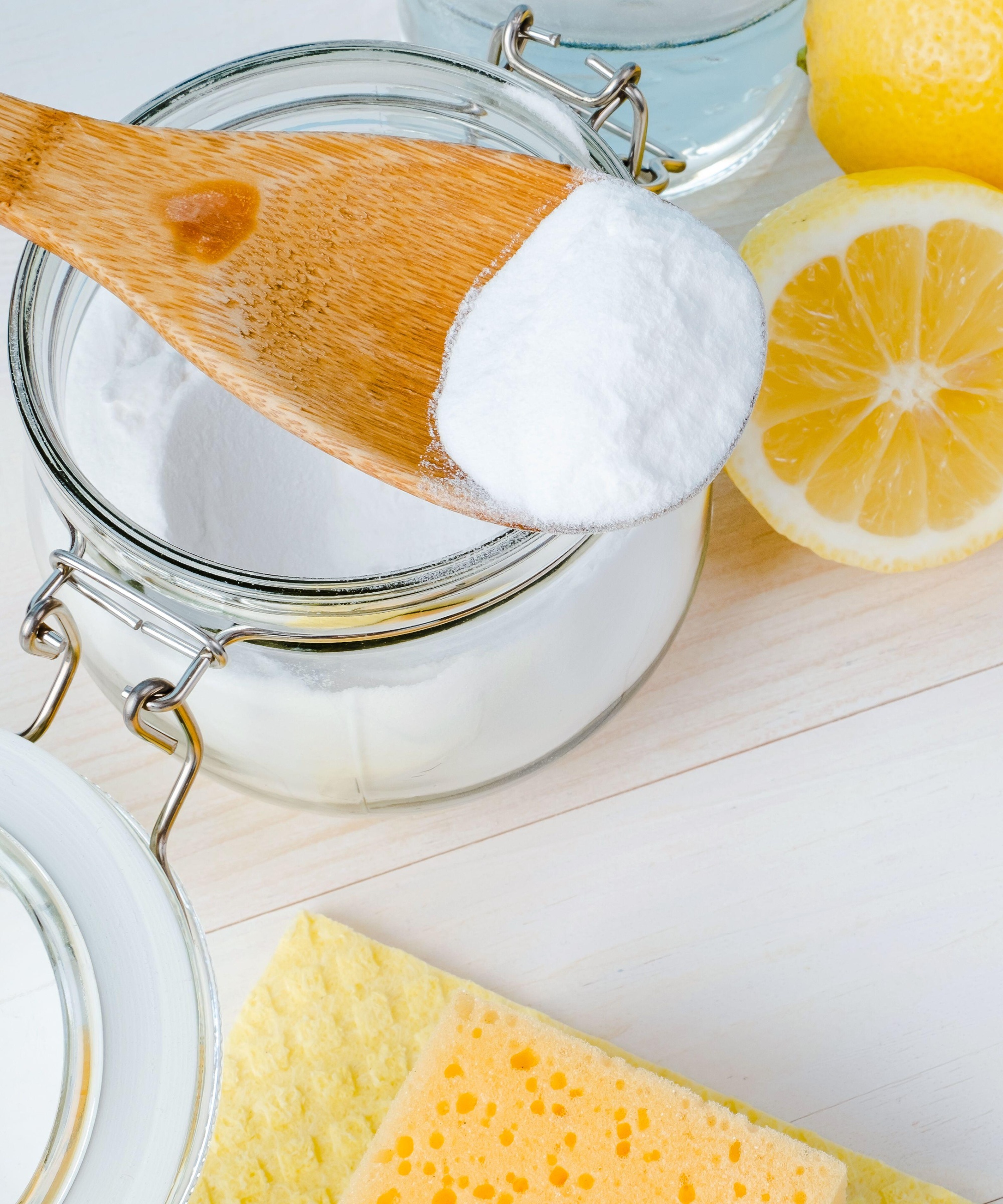
5. Aluminum
'Baking soda can be used to scrub most metal surfaces; however, aluminum cookware needs to be treated carefully,' Jack warns. 'Aluminum pots and pans will start to oxidize if baking soda is used often on them, which results in color change.'
If you still want to clean your metal cookware with baking soda, the expert suggests making sure to rinse it off right once to avoid any discoloration. Instead, try Star Brite Aluminum Cleaner and Restorer.
Sign up to the Homes & Gardens newsletter
Design expertise in your inbox – from inspiring decorating ideas and beautiful celebrity homes to practical gardening advice and shopping round-ups.

Megan is the Head of Celebrity Style News at Homes & Gardens, where she leads the celebrity/ news team. She has a history in interior design, travel, and news journalism, having lived and worked in New York, Paris, and, currently, London. Megan has bylines in Livingetc, The Telegraph, and IRK Magazine, and has interviewed the likes of Drew Barrymore, Ayesha Curry, Michelle Keegan, and Tan France, among others. She lives in a London apartment with her antique typewriter and an eclectic espresso cup collection, and dreams of a Kelly Wearstler-designed home.
-
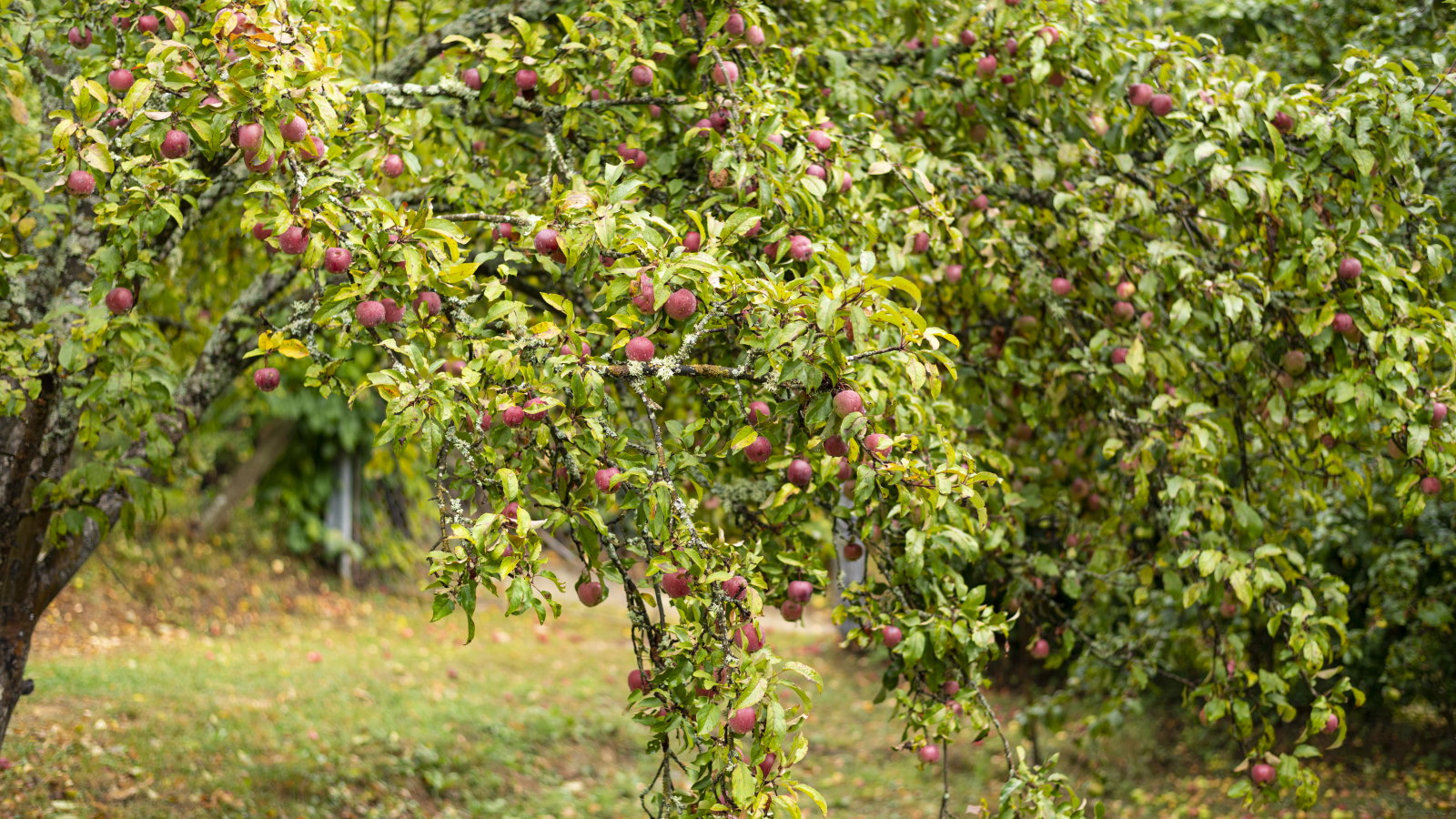 Plants never to grow next to fruit trees
Plants never to grow next to fruit treesExpert advice on which plants to keep away from fruit trees to encourage a healthy harvest
By Jacky Parker Published
-
 Martha Stewart's tips for arranging daffodils are unbelievably simple and effective – it's the only flower advice you need this springtime
Martha Stewart's tips for arranging daffodils are unbelievably simple and effective – it's the only flower advice you need this springtimeMartha shows us that we can create gorgeous bouquets of this seasonal flower by simply trimming the stems and placing them in specific vases
By Hannah Ziegler Published